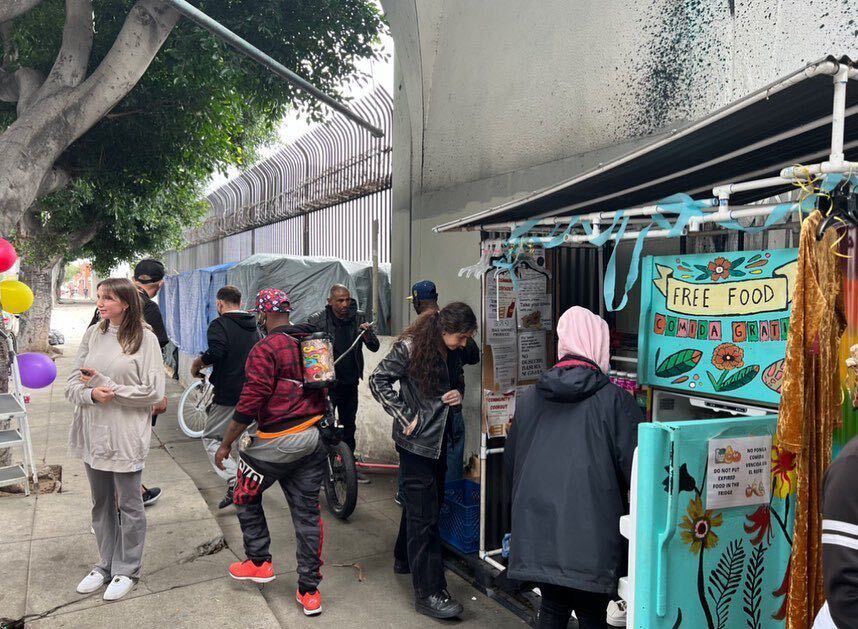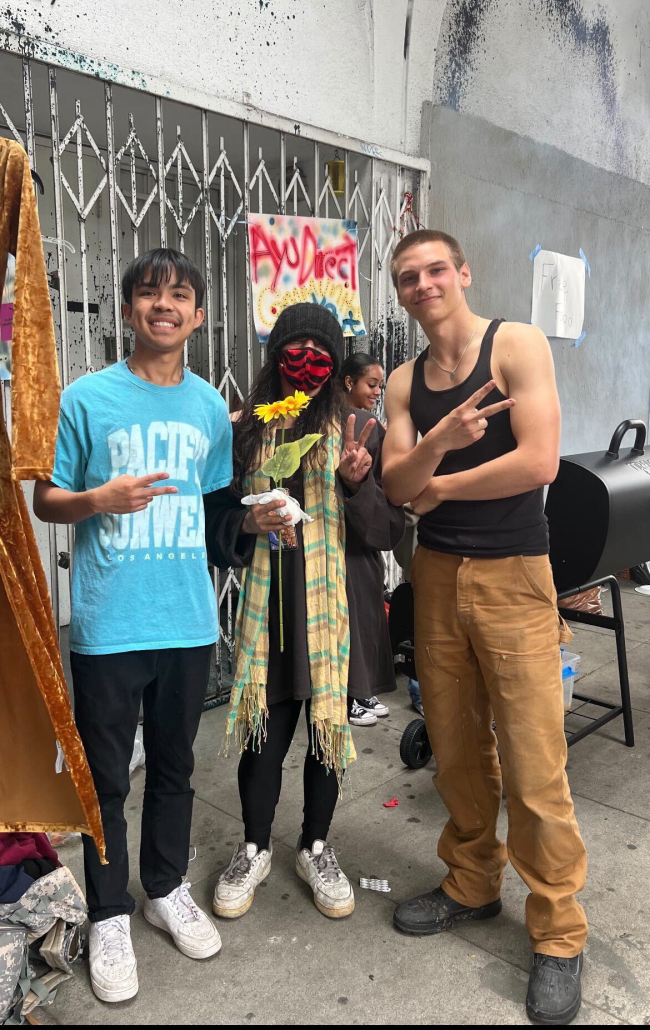Student service helps people in need near campus

Growing up, Dominic Jocas’ parents instilled in him a great sense of solidarity for others. When he came to USC, his qualities as an avid explorer translated to going into South Central and Skid Row, interacting with communities outside of the USC bubble.
One of the first things Jocas, a freshman majoring in anthropology, noticed was the negative perception other students have about USC’s neighboring communities, namely unhoused individuals. This, combined with having a lot of leftover meal swipes each week, made him start handing out extra food from University dining establishments to those in need.
“As Americans, we’re conditioned to completely block off homeless people from our entire mindset, and every time we see one, we’re taught to pretend they don’t even exist,” Jocas said. “That’s a dehumanizing way to look at someone who has nothing. A lot of times, all they want is just company and someone to talk with them and someone that actually cares.”
However, Jocas soon realized that while he wanted to find a way to help more, he did not have the resources to do it on his own. He also noticed that students tend to have a lot of unused belongings, such as clothes and shoes.
Launched Jan. 13, Jocas created AyuDirect to accomplish three main goals: make material distribution as quick as possible, create a sustainable way of helping those in need and merge the communities of USC, South Central and University Park. Jocas wanted to create a program resembling Uber, where a person puts in a request for an item and then someone in the area who can fulfill the request is matched with them.
“We need to find a way to get our students to see themselves as South Central residents and not as just USC students and get them [to be] a part of the community,” Jocas said.
Other apps also locate resources, such as food pantries, around Los Angeles, but unhoused individuals do not have access to phones or reliable internet connection. AyuDirect differs from other programs because their approach focuses on walking around the area and asking people what they need directly, Jocas said.
Since September, Jocas has distributed around 1,000 meals and fulfilled around 15 AyuDirect requests. However, the program, which is currently run on Instagram, depends heavily on having a large follower base who can see requests and fulfill them, Jocas said. He hopes to launch a dedicated app by the beginning of next semester.
“We’ve only had a few requests because I don’t have the follower base yet to be fulfilling requests daily like I want to, but overall it’s been nothing but support and a lot of people cheering me on,” Jocas said.

Jocas has not been alone in his endeavor. Lisa Derinsicky, a community leader who met Jocas when he made a donation to the community fridge, has helped Jocas connect with South Central. Derinsicky, whose main goals for the community are unity and collaboration, said she loves when students visit and find ways to help. While she recognizes the stigma around the South Central area, she attributes it to the fear of the unknown and encourages students to get to know the community.
“Take the first step and come and see for yourself,” Derinsicky said. “I’m pretty sure that many [students] will have a change of heart, as many of them have.”
While AyuDirect grows enough to have a constant flow of requests and people fulfilling them, Jocas focuses on distributing food in the meantime. To aid with food distribution, AyuDirect hosted a cookout April 2. The cookout also served as a way for the project to gain more publicity.
“I don’t have enough words to describe [the cookout]. It was awesome,” Derinsicky said. “When you see happy people with a satisfied stomach and a big happy face because they are so content and satisfied to mingle and get acquainted with old friends and make new friends, that is awesome. There’s no price on that.”
Dat Nguyen, a freshman majoring in psychology, helps Jocas with the project whenever he can. Similarly to Jocas, his mother taught him to help others anytime he could from a young age. He wishes other students understood the privilege they hold.
“We’re in this bubble at USC, but when you go further or you go downtown, you don’t realize how bad it is,” Nguyen said. “We have issues with gentrification, which will cause more displaced families and more displaced homes. People don’t understand the effects that the school has and I’m concerned we are not doing a lot to help.”
Jocas urges students to follow the AyuDirect Instagram page and turn on the post notifications so that they know when requests are made and help spread the word. He also asks students to be more compassionate towards those less fortunate than them.
“Don’t be so quick to judge people, take the time to hear people’s stories,” Jocas said.
Anthony Slade contributed to this report.

